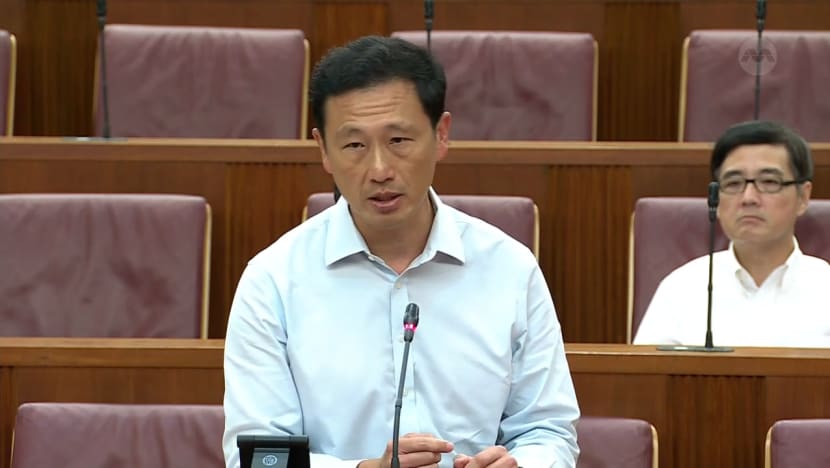Current standards for telemedicine still valid in wake of MaNaDr incident: Ong Ye Kung
Last month, the health ministry said it intends to revoke MaNaDr Clinic's licence after a probe into its short teleconsultations.

Health Minister Ong Ye Kung in Parliament on Nov 11, 2024.

This audio is generated by an AI tool.
SINGAPORE: Despite the recent MaNaDr incident, current requirements and standards for telemedicine remain valid and enforcement has been effective, said Health Minister Ong Ye Kung in parliament on Monday (Nov 11).
Mr Ong said the Ministry of Health (MOH) had taken “prompt” action against MaNaDr Clinic.
"While the offences went on for a while, it wasn't a long while. It was a matter of months, we took action, investigated … (and) corrected the situation," he added.
Last month, the ministry issued a notice to MaNaDr Clinic saying that it intends to revoke its licence to provide all outpatient medical services, including physical, temporary and remote consultations.
It also referred 41 of the clinic's doctors to the Singapore Medical Council (SMC) for alleged professional misconduct.
These come after potential breaches were detected, including short teleconsultations, repeated issuance of medical certificates (MCs) to the same patient over a short period of time and poor documentation.
The regulation of telemedicine is not different from that of all other economic activities - standards are set, licensing is required, periodic audits are conducted for each clinic, complaints are investigated and offenders taken to task. Such regulatory frameworks cannot eradicate offenders but they ensure that when practices have gone astray, especially with the advent of new technology and business models, they can be corrected promptly. And this is exactly what happened in the case of MaNaDr, in which its doctors issued medical certificates in a way that fell short of regulations. Several doctors also appeared to have breached the Singapore Medical Council’s guidelines and were referred to the council for further disciplinary actions. Health Minister Ong Ye Kung gave this update in reply to MPs’ questions in Parliament on Monday (Nov 11).
Responding to Members of Parliament (MPs) who had asked if there was a need to review guidelines to specifically address concerns that may arise from telemedicine, Mr Ong said he did not think so as the current guidelines are still applicable.
Currently, telemedicine providers are required to be licensed under the Healthcare Services Act and comply with requirements and standards, he said.
Medical practitioners also need to adhere to the ethical and professional standards set out in the SMC’s Ethical Code and Ethical Guidelines.
Under the guidelines, they must obtain sufficient information from their patients, conduct appropriate clinical assessment and ensure that any provision of medical care, prescription of medicines and issuance of medical certificates are justified on proper medical grounds.
He added that polyclinic patients who require an MC have to turn up in person.
“We were hesitant to allow telemedicine for acute treatment precisely because we wanted to be quite careful about (the) issuing of MCs,” he said.
Mr Ong pointed out that regulatory frameworks cannot eradicate offences.
Instead, he said they ensure that when practices have gone astray, especially with the advent of new technology and business models, they can be corrected promptly.
"When we have new technology, we have an opportunity to make service better, to serve patients and residents better," he said.
"But just like all new technology, all new business models, someone will try to abuse and then questions will be raised: Is the ministry stepping up audits, enforcement, regulation … there's always a temptation to do so.
"Then when you do so, you stop being able to seize the opportunities that new technology can present you.
"So that is why I want to be quite honest with members, I think the current requirements and standards are valid, and our enforcement has been effective."
















